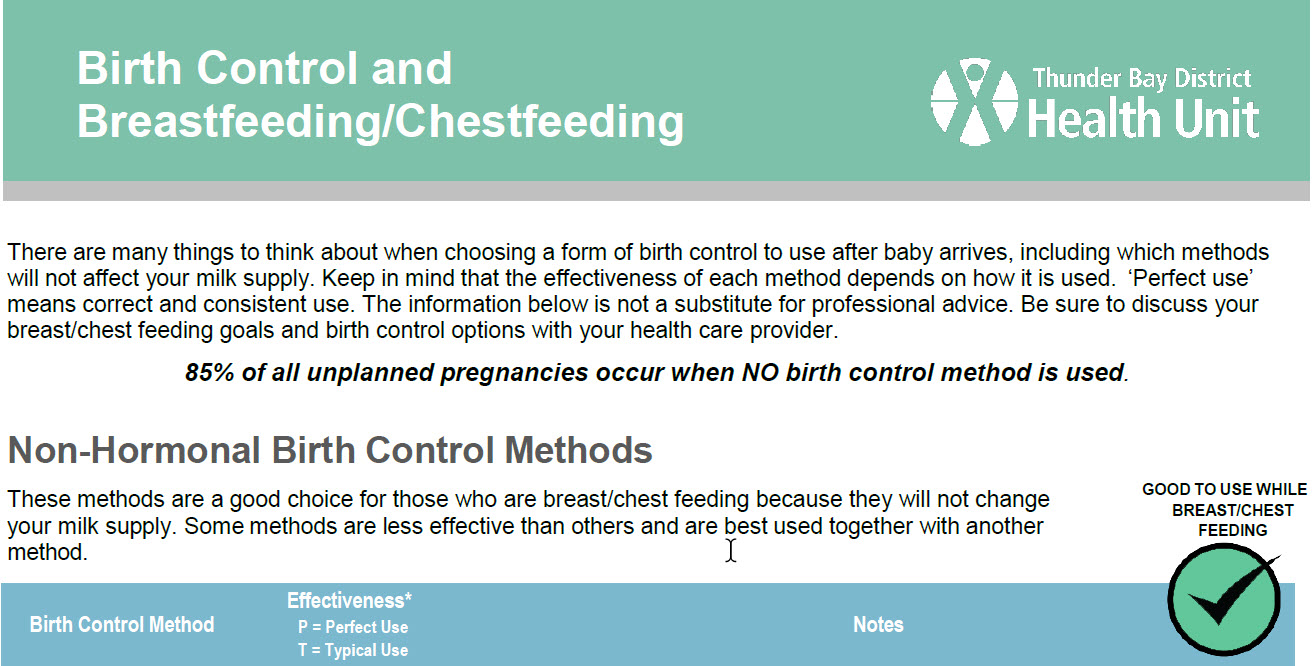Can Breastfeeding/Chestfeeding be used as a Method of Contraception (birth control)?
Yes. Breastfeeding/chestfeeding can be used for birth control, but only if you answer “Yes” to ALL of the four statements below:
- My baby is less than 6 months old.
- I have not had a period since my baby was born.
- My baby is fully or nearly fully breastfed/chestfed.
- I breastfeed/chestfeed at least every 4 hours during the day and at least every 6 hours at night.
If you answer “No” to any of these statements, begin another method of contraception.
Fully breastfed/chestfed means your baby gets all food from suckling at the breast/chest. Your baby must feed at the breast/chest; pumping breastmilk/chestmilk does not have the same effect.
Nearly fully breastfed/chestfed means your baby gets most food from breastfeeding/chestfeeding. Vitamins, minerals, juice, water and some other foods (but no more than one or two mouthfuls a day) are also given.
This method of contraception is called Lactational Amenorrhea Method:
L = Lactational means breastfeeding/chestfeeding
A = Amenorrhea means having no monthly period
M = Method
To use LAM effectively, you need additional detailed information. For more information on LAM and other methods of birth control, call: Healthy Babies Healthy Children Lactation or the Sexual Health Clinic at 625-5900.
Below is a link to a PDF describing hormonal and non-hormonal methods of birth control, their effectiveness, and their effect on breastfeeding/chestfeeding:
Your doctor, nurse practitioner, or a lactation consultant can help you decide which form of birth control is right for you while you are breastfeeding. If you are considering a hormonal method of birth control, it is important to consider selecting a short acting form (e.g. the pill), rather than a long acting form (e.g. the shot), as the results may be reversed more quickly if they are having an impact on your milk supply.
